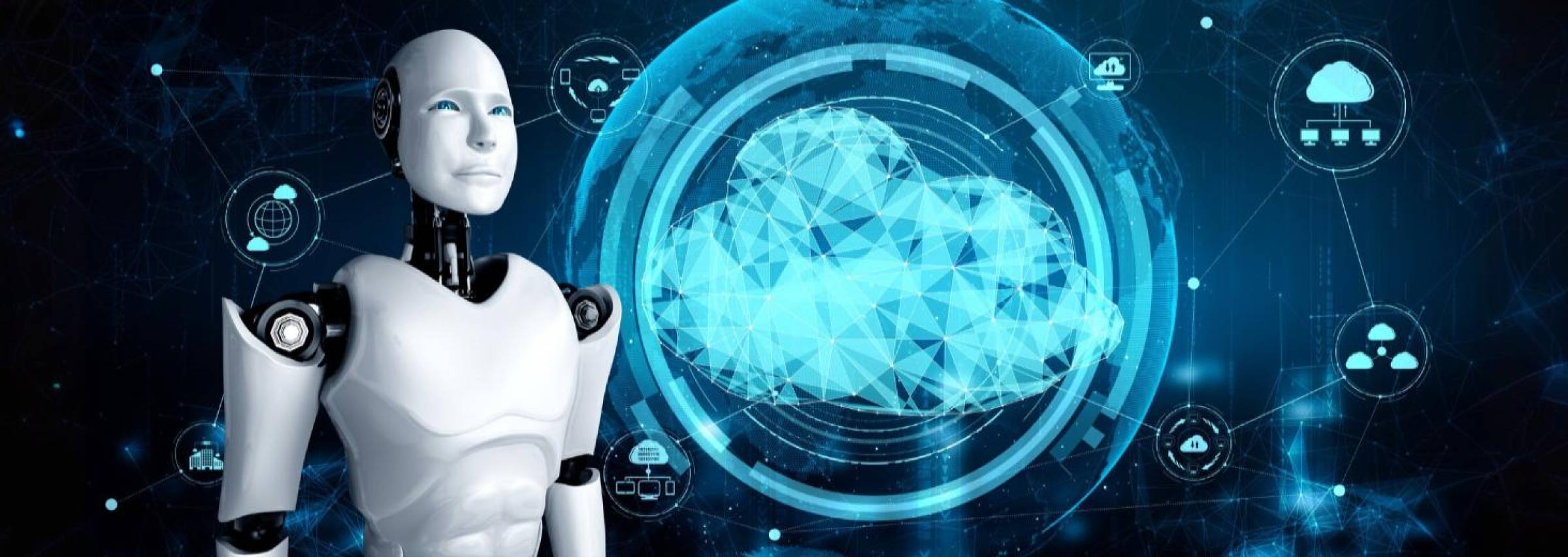Manufacturers are realizing the potential of AI for their industry and are rapidly adopting it to streamline processes, automate tasks and address key concerns. From predicting equipment failures, detecting faulty components to optimizing product design, AI is making its presence felt across the factories and plants.
Manufacturing companies are turning to AI and Machine Learning (ML) to address many challenges and streamline the way they do business. As per the latest report by MarketsandMarkets , the AI in the manufacturing market is predicted to be valued at USD 1.1 billion in 2020 and is expected to reach USD 16.7 billion by 2026; at a CAGR of 57.2% during the period.
The major drivers for AI in the manufacturing sector are the increasing number of large datasets (called big data), industrial IoT and automation, increasing computing power, and increasing VC investments. AI in manufacturing is a paradigm shift from hard coded to adaptive self-learning solutions working on algorithms. It is a new experience for manufacturers and many of the companies after realizing the potential of AI are leveraging it to their advantage to address the changing market dynamics and the needs of customers.
If you’re looking to adopt AI in your manufacturing operations, then we can help. Gemini Consulting & Services has a dedicated AI practice with experienced data scientists and manufacturing experts. To know more, click here.
AI Use Cases in Manufacturing
- Product Design: The design stage impacts efficiency across the entire manufacturing value chain. For example, the weight of an aircraft partition can impact its fuel efficiency and fuel costs. According to research by the University of New Mexico, design decisions determine 70% of the product manufacturing costs. The car manufacturer partnered with Autodesk to build generative design algorithms that factor in design constraints and provides an optimized product design. This is helping the company in rapid prototyping. Apart from cost-optimization, manufacturers also need to continuously innovate and build new products in order to stay competitive. But product development takes time: it can take 2 to 5 years to design a car.
Now, car manufacturers are leveraging AI to make this process more rapid- and cost-efficient. Companies like General Motors are using AI in product design. Named ‘Dreamcatcher’, the generative design algorithm utilizes Machine Learning to generate thousands of different variations of designs based on the inputs provided like functional requirements, material, manufacturing methods and other constraints. The outcomes are then optimized for various performance criteria.
Similarly, Aircraft manufacturer Airbus leveraged generative AI design to build a cabin partition for its A320 fleet. The company first specified technical parameters like dimensions and load capacity. Next, design options were developed using intelligent software. The generative system then tested thousands of variants and configurations. With every iteration, the algorithm learned more about what works and what didn’t. The end result was a new cabin partition that weighed 45% less than the existing one but that was stable. This helped the aircraft manufacturer lower fuel consumption and emissions.
- Predictive Maintenance: If there’s one application of AI, that has attracted every manufacturer, it is predictive maintenance. Maintenance of factory machinery and equipment is a labor and cost intensive process. And the consequences for equipment failures are high as it may lead to downtime. AI’s ability to predict when machines and equipment are likely to fail and recommending condition-based maintenance plans is getting very popular in the manufacturing industry.
Predictive maintenance uses data from multiple sources like sensor data from machines, historical maintenance records, and weather data etc., to predict when a machine will need servicing. A predictive maintenance framework can be built for the component manufacturing process utilizing Machine Learning techniques, software engineering principles and sensors etc. The system will use historical data, machine requirements and data collected from sensors fitted on it to perform real-time detection, visualization, sending alerts and recommendations for fixes. It will alert the person and recommend fix estimations before the machine actually breaks down. This helps manufacturers in reducing sudden & unplanned downtime, optimizing capacity, and reducing labor and cost.
- Digital Twins: Companies are using digital twins to get a better understanding of complicated machinery. A digital twin is a virtual representation or model of a physical object that uses sensors to receive information about its physical counterpart. Sensors are attached to a physical object like a machine or equipment. The sensors collect data when the object is in operation. This information can then be processed in real-time by AI to extract insights about the physical object. This information and intelligence can then be used to conduct simulations, detect failures and anticipate issues.
- Quality Checks: Manufacturers are using Artificial Intelligence and Machine Learning to build automated inspection tools to detect deviations from quality standards. Sensors and cameras are used to collect data and images on products built in the production line. The data of the evaluated products are then processed in real-time to identify defects and deviations. The AI system then alerts the manager about the deviation. This is helping companies automate QC and drive their quality standards.
- Demand Forecasting: AI is being used to predict demands in not only manufacturing but also in various other industries. AI-enabled forecasting is using data from various sources sales, stores, inventory and historical data to predict demand. This is helping manufacturers in meeting demands, optimized resource allocation, stock availability at the stores and driving profitability.
- Supply Chain Management: Supply chains across the globe are under huge pressure amidst the COVID-19 global crisis. Many companies are leveraging AI and ML to strengthen their supply chain process and automate tasks to make the process less dependent on human resources. This is helping companies in using their skilled manpower for critical tasks that require human intelligence, gain significant efficiencies and reduce costs.
- Employee Safety: Companies are also using AI and ML to assess worker’s safety in specific working conditions. Workers are vulnerable to accidents in certain manufacturing operations. AI is being used to assess the working condition in real-time, detect threats like faulty machines, higher temperatures, hazardous smokes etc.
It’s just the beginning of AI in manufacturing. Industrial 4.0 is on and AI is helping the digital transformation of factories and plants. As we go ahead, we’ll see more widespread and creative uses of AI in manufacturing operations.



